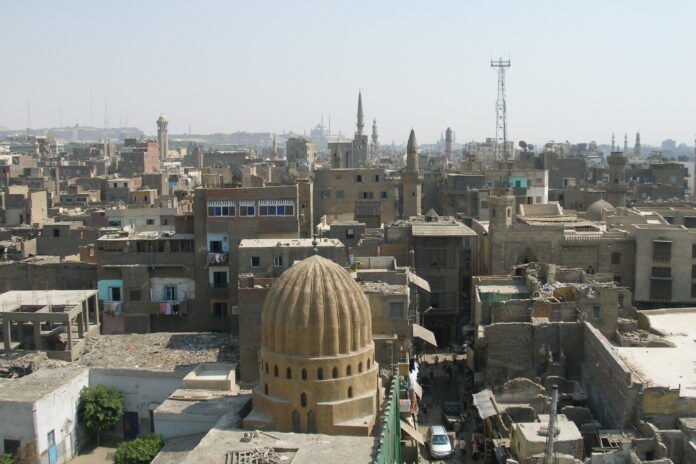Rwanda has developed a dual health insurance system that combines extensive public health coverage with a growing private insurance sector. Both systems aim to improve access to healthcare but differ significantly in coverage scope, target populations, financing mechanisms, and service features.
Similarities:
- Goal of Expanding Access to Healthcare
Both public and private insurance in Rwanda share the common goal of increasing healthcare access. Public schemes focus on universal health coverage, while private insurance caters to individuals seeking enhanced or specialized care, including expatriates. - Comprehensive Health Services
Both sectors provide coverage for a broad range of medical services. Public insurance, led by the Mutuelle de Santé CBHI, includes essential services like maternity care, treatment of infectious diseases, and now more advanced treatments such as cancer and kidney care. Private insurers also cover inpatient, outpatient, maternity, chronic disease management, and emergency care, often with more extensive networks including private hospitals. - Government Regulation and Support
Public insurance is managed by government entities like the Rwanda Social Security Board (RSSB), ensuring broad policy oversight. Private insurers operate under government regulatory frameworks, aligning their practices with national health priorities.
Differences:
- Population Coverage and Eligibility
Public health insurance, primarily through Mutuelle de Santé, covers about 86-92% of the population, emphasizing inclusivity and affordability. It targets all Rwandans, especially lower-income groups, with free or subsidized premiums for the poorest citizens. In contrast, private insurance mainly serves higher-income individuals, corporate employees, expatriates, and those seeking regional or international healthcare options. Many expatriates cannot access Mutuelle de Santé and rely entirely on private international insurance. - Cost and Payment Structure
Public insurance premiums are very affordable—approximately USD $2 per family member annually—with subsidies for vulnerable groups. Contributions to the RSSB Medical Scheme, covering public employees, are payroll-based, amounting to 15% of salary split between employer and employee. Private insurance premiums vary widely based on coverage level, provider, and regional benefits. Private plans often include co-payments (e.g., 10%) and higher premium costs due to broader or international service access. - Coverage Scope and Quality of Services
While public insurance covers essential and increasingly advanced medical treatments, its facilities are predominantly public hospitals and clinics, sometimes facing capacity constraints. Private insurance offers access to private and international healthcare facilities, including higher-end hospitals with shorter wait times and specialized care. Private plans can be customized for corporate clients and individuals seeking more comprehensive or international coverage. - Administration and Payment Mechanisms
Public insurance uses a centralized pooling system managed by RSSB with electronic billing and decentralized service delivery at district and community levels. Private insurers operate on a commercial basis, offering a range of plans with varying benefits, co-payments, and deductibles. Employer-sponsored private plans are customized and negotiated separately from government schemes. - Consumer Experience and Satisfaction
Public insurance is praised for its inclusivity and affordability but sometimes criticized for limited facility capacity and resource constraints. Private insurance generally offers better consumer satisfaction due to wider hospital choices, quicker access, and international options, though at a higher cost.
Top Public Health Insurance Schemes in Rwanda: Cost, Coverage, Accessibility, and Features
Rwanda has made remarkable progress in establishing a robust public health insurance system that covers the majority of its population. The public schemes focus on affordability, inclusivity, and expanding access to essential and advanced healthcare services. Below are the top public health insurance options in Rwanda, highlighting their costs, coverage features, eligibility, financial mechanisms, and consumer satisfaction.
1. Mutuelle de Santé (Community-Based Health Insurance – CBHI)(Official Website: https://www.rssb.rw/scheme/cbhi-scheme)
- Cost: Annual premiums are highly affordable, around USD $2 per family member, with wealthier households paying up to approximately USD $10 annually.
- Coverage Features: Provides comprehensive basic healthcare, including maternity services, outpatient treatment of common illnesses (malaria, diarrhea, pneumonia), vaccinations, and increasingly advanced care such as cancer treatment, kidney transplants, interventional cardiology, and surgeries like joint replacements.
- Eligibility: Open to all Rwandans; the poorest (classified as categories D and E) qualify for free enrollment, ensuring inclusivity.
- Financial Features: Funded through premiums, government subsidies, and donor support; managed centrally by the Rwanda Social Security Board (RSSB) with electronic billing and centralized risk pooling to ensure sustainability.
- Consumer Satisfaction: High satisfaction due to affordability and coverage breadth, though some concerns remain about healthcare facility capacity and service wait times.
2. RSSB Medical Scheme(Official Website: https://www.rssb.rw/scheme/medical-scheme)
- Cost: Contributions amount to 15% of the employee’s basic salary, split equally between employer and employee.
- Coverage Features: Covers about 85% of medical bills for treatment and prescribed drugs. Includes access to a wide range of services such as hospitalization, surgeries, diagnostic tests, and medications at facilities with RSSB agreements.
- Eligibility: Mandatory for public sector employees and available to private sector workers in companies with at least seven employees. Includes dependents such as spouses and children.
- Financial Features: Payroll deductions fund the scheme, promoting steady cash flow and enabling comprehensive benefits. Members pay co-insurance of 15% of medical costs.
- Consumer Satisfaction: Generally positive, especially among public employees; appreciated for extensive coverage but with some limitations on provider choice.
3. Military Medical Insurance (MMI)(Official Website: https://www.mmi.gov.rw/)
- Cost: Funded by the Ministry of Defense with no direct premiums for beneficiaries.
- Coverage Features: Comprehensive healthcare tailored specifically to military personnel and their families, covering preventive, curative, and emergency care.
- Eligibility: Exclusive to active military members and their dependents.
- Financial Features: Fully government-funded, ensuring no out-of-pocket costs for members.
- Consumer Satisfaction: High satisfaction due to comprehensive coverage and prioritized services within military health facilities.
4. Public Health Facilities Coverage via CBHI Funding
- Cost: Funded by Mutuelle de Santé premiums combined with government support.
- Coverage Features: Reimburses public health centers and hospitals on a fee-for-service basis, covering outpatient and inpatient care, maternal health, vaccinations, and basic emergency services.
- Eligibility: Services available to anyone enrolled in CBHI.
- Financial Features: Tariffs and co-payment levels revised periodically to maintain affordability and system sustainability.
- Consumer Satisfaction: Positive feedback for accessibility; some limitations linked to resource constraints and infrastructure quality.
5. Disease-Specific Public Health Programs
- Cost: Free or heavily subsidized, funded by government and international donors.
- Coverage Features: Target critical public health challenges such as HIV/AIDS, tuberculosis, malaria, and maternal and child health, including medication, counseling, and treatment.
- Eligibility: Available to all Rwandans in need, often integrated with CBHI coverage.
- Financial Features: No direct cost to beneficiaries, supported by public funds and donor grants.
- Consumer Satisfaction: Very high due to zero cost and targeted, lifesaving services.
Top Private Health Insurance Providers in Rwanda: Cost, Coverage, Accessibility, and Features
Rwanda’s private health insurance sector primarily serves expatriates, higher-income individuals, and corporate clients seeking enhanced or international healthcare coverage beyond what public schemes offer. These insurers provide customizable plans, access to private and international healthcare facilities, and a variety of benefits tailored to different needs. Below are the top private health insurance providers in Rwanda with key details on costs, coverage, accessibility, financial features, and consumer satisfaction.
1. Prime Medical Insurance (Prime Insurance Ltd)(Official Website: https://prime.rw/general-insurance/products/prime-medical-insurance)
- Cost: Premiums vary widely depending on the chosen plan and coverage level, typically starting around USD $100 to $300 per month for individuals and families.
- Coverage Features: Offers flexible plans including outpatient, inpatient, maternity, chronic disease management, dental, and emergency evacuation. Plans include the ISONGA plan for individuals and small businesses and the IMENA plan for corporate groups with regional and international coverage options.
- Eligibility: Open to individuals, families, SMEs, and corporations. No strict restrictions; plans are customizable.
- Financial Features: Flexible premiums based on risk profiles and coverage extent; co-payments and deductibles vary by plan. Corporate plans may include negotiated rates and group discounts.
- Consumer Satisfaction: Generally positive, with high marks for service responsiveness and claim handling; some feedback on premium costs.
2. Radiant Insurance Company(Official Website: https://radiant.co.rw/)
- Cost: Tiered premiums range from affordable basic plans (~USD $50/month) to comprehensive packages exceeding USD $400/month for extensive coverage.
- Coverage Features: Covers outpatient and inpatient care, emergency services, maternity, specialist consultations, and treatment abroad. Most plans include a 10% co-payment and offer varying limits on annual benefits.
- Eligibility: Open to individuals and corporate clients; plans cater to different income groups and needs.
- Financial Features: Risk-based pricing with co-payment structures to manage costs; employer-sponsored group plans available.
- Consumer Satisfaction: Positive customer reviews for accessibility and network of providers; occasional concerns about claim processing time.
3. International Health Insurance Providers (e.g., Bupa Global, Cigna Global, Allianz Care)
- Cost: Premiums vary widely, often starting around USD $300 per month for expatriates, depending on age, health status, and coverage area.
- Coverage Features: Comprehensive global coverage including inpatient, outpatient, maternity, dental, mental health, emergency evacuation, repatriation, and chronic disease management. Access to private hospitals worldwide.
- Eligibility: Mainly open to expatriates, foreign nationals, and affluent Rwandans seeking international healthcare access.
- Financial Features: Premiums based on detailed underwriting; often include deductibles and co-insurance; usually no coverage waiting periods for emergencies.
- Consumer Satisfaction: High satisfaction for global coverage, quality of care access, and claim support; premium costs can be a limiting factor.
4. Local Private Insurance Companies (e.g., Britam Rwanda, Old Mutual Rwanda)
- Cost: Premiums typically range from USD $50 to $250 monthly, depending on plan type and insured benefits.
- Coverage Features: Plans include outpatient and inpatient services, maternity care, chronic illness management, specialist consultations, and emergency care. Some offer regional referral networks.
- Eligibility: Open to all Rwandans and expatriates; customizable individual and group plans.
- Financial Features: Flexible payment plans with co-payments and deductibles; employer group schemes available.
- Consumer Satisfaction: Generally positive, with clients appreciating local customer service and plan flexibility.
5. Employer-Sponsored Private Health Insurance Plans
- Cost: Variable, often subsidized by employers; premiums depend on plan scope and company size.
- Coverage Features: Typically comprehensive, including outpatient, inpatient, maternity, chronic care, and emergency services. Plans may include international referrals and wellness programs.
- Eligibility: Limited to employees of participating companies and their dependents.
- Financial Features: Premiums usually paid partially or fully by employers; employees may have co-pays or deductibles.
Consumer Satisfaction: High among covered employees due to broad coverage and minimal out-of-pocket expenses; limited choice of insurers.
READ MORE: Private and public health insurance of South Africa (Make informed choices)


